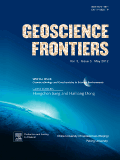
Geoscience Frontiers
Scope & Guideline
Exploring Frontiers in Earth and Planetary Sciences
Introduction
Aims and Scopes
- Environmental Geochemistry:
Research focusing on the chemical processes and interactions within geological systems, particularly how they affect environmental quality and sustainability. - Geological Modeling and Simulation:
Studies that employ advanced modeling techniques, including machine learning and artificial intelligence, to simulate geological processes and predict outcomes in areas such as landslide susceptibility and groundwater dynamics. - Tectonics and Geodynamics:
Investigations into the processes that shape the Earth's crust, including plate tectonics, mountain formation, and the evolution of continental and oceanic structures. - Natural Resource Management:
Research on the sustainable extraction and utilization of natural resources, including minerals, water, and energy, often integrating economic and ecological perspectives. - Climate Change Impact Studies:
Examinations of how geological and environmental factors contribute to climate change, as well as the effects of climate change on geological processes and natural resources. - Remote Sensing and Geospatial Analysis:
Utilization of remote sensing technologies and geospatial data analysis to study geological phenomena, assess environmental changes, and support resource management. - Innovative Geoscience Technologies:
Exploration of new technologies and methodologies in geoscience research, including the application of data science and computational techniques to enhance understanding of geological systems.
Trending and Emerging
- Climate Change Mitigation Strategies:
Research focusing on the role of geosciences in addressing climate change, including carbon capture, sustainable resource management, and environmental restoration, is gaining increasing attention. - Machine Learning and AI Applications:
The use of machine learning and artificial intelligence in geological research has surged, with applications in predictive modeling, data analysis, and enhancing the accuracy of geoscientific investigations. - Sustainable Energy Solutions:
Studies on renewable energy sources, energy efficiency, and the environmental impacts of energy production are trending, reflecting a global shift towards sustainable development. - Water Resource Management and Quality Assessment:
There is a growing focus on the assessment and management of water resources, particularly in relation to contamination, sustainability, and climate variability. - Geochemistry of Natural Hazards:
Research investigating the geochemical processes associated with natural hazards, such as landslides and earthquakes, is increasingly relevant in the context of risk assessment and mitigation. - Integrative Approaches to Geosciences:
Interdisciplinary research that combines geological, environmental, and technological perspectives is trending, fostering holistic understandings of complex geoscientific issues.
Declining or Waning
- Traditional Mineral Exploration Techniques:
Research focusing on conventional methods for mineral exploration has seen a decline, as newer technologies and interdisciplinary approaches become more prominent. - Geological Mapping without Technological Integration:
Papers that rely solely on traditional geological mapping techniques, without the incorporation of modern tools such as GIS or remote sensing, are becoming less common. - Paleontological Studies:
While still important, the frequency of studies specifically focused on paleontology and fossil records has decreased, possibly overshadowed by more pressing environmental and geochemical topics. - Single-Disciplinary Studies:
Research that does not integrate multiple disciplines or methodologies is becoming less prevalent, as the journal increasingly emphasizes interdisciplinary collaboration. - Basic Geochemical Analysis:
Basic studies on geochemical properties, without application to broader environmental or resource management issues, are receiving less attention compared to more applied research.
Similar Journals

DOKLADY EARTH SCIENCES
Shaping the Future of Earth Science ExplorationDOKLADY EARTH SCIENCES is a reputable journal published by MAIK NAUKA/INTERPERIODICA/SPRINGER, focusing on the dynamic field of Earth and Planetary Sciences. With an ISSN of 1028-334X and E-ISSN 1531-8354, this journal offers a platform for researchers to disseminate their findings and insights that contribute to our understanding of Earth systems over a continuous publishing span from 1998 to 2024. It currently holds a Q3 quartile ranking in the Earth and Planetary Sciences category, reflecting an emerging yet significant impact within its field, evidenced by its Scopus ranks where it stands at 123rd in general Earth sciences and 113th in miscellaneous Earth sciences. DOKLADY EARTH SCIENCES aims to bridge research gaps and foster collaboration among a diverse audience including researchers, professionals, and students committed to advancing knowledge in geoscience. The journal stands as a vital resource for those seeking to explore contemporary challenges and innovations within the realm of Earth sciences.
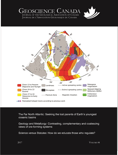
GEOSCIENCE CANADA
Shaping the Future of Planetary UnderstandingGEOSCIENCE CANADA is a premier academic journal published by the Geological Association of Canada, dedicated to advancing knowledge and research in the field of Earth and Planetary Sciences. With an ISSN of 0315-0941 and an E-ISSN of 1911-4850, this journal has been a key platform for scholarly discourse since its inception in 1979, continuing its valuable contributions through to 2024. Positioned in the Q2 quartile for Earth and Planetary Sciences (miscellaneous) as per the 2023 rankings, GEOSCIENCE CANADA is recognized for its rigorous peer-review process and impactful publications, making it a vital resource for researchers, professionals, and students alike. The journal covers a broad array of topics within geoscience, promoting innovative research and discussions pertinent to geologists and Earth scientists across Canada and internationally. While it does not currently provide open access options, the journal continues to support a diverse readership eager to engage with cutting-edge studies that shape the understanding of Earth's processes.

Journal of Earth Science
Connecting global minds through open access geoscience.Journal of Earth Science, published by the China University of Geosciences, Wuhan, is a leading journal in the field of Earth and Planetary Sciences, recognized for its significant contributions to the understanding of geological processes and environmental challenges. With an impressive Q1 ranking among Earth and Planetary Sciences journals and a strong position at Rank #39/195 in Scopus, this journal not only showcases high-quality research but also serves as a crucial platform for disseminating innovative findings, spanning a broad spectrum of topics from geophysics to climate change. The journal adopts an open access model, which enhances the visibility and accessibility of research articles published from 2009 to 2024, thereby facilitating collaboration and knowledge sharing among the global scientific community. With its commitment to advancing geosciences, Journal of Earth Science is invaluable for researchers, professionals, and students alike, eager to stay informed and contribute to ongoing discussions in this dynamic field.
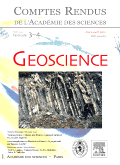
COMPTES RENDUS GEOSCIENCE
Advancing Knowledge in Geoscience Research.COMPTES RENDUS GEOSCIENCE, an esteemed open-access journal published by ACAD SCIENCES since 2020, serves as a vital platform for disseminating significant research in the field of Earth and Planetary Sciences. With an ISSN of 1631-0713 and E-ISSN of 1778-7025, this French journal is located at 23 Quai de Conti, Paris, 75006, France. Focusing on various sub-disciplines, it is recognized in the 2023 category quartiles as Q2 in Earth and Planetary Sciences (miscellaneous) and Q3 in Global and Planetary Change. The journal ranks #82 out of 195 in Earth and Planetary Sciences and #79 out of 120 in Environmental Science, reflecting its commitment to quality scholarship and impactful research. The journal's open-access model enhances accessibility, ensuring that researchers, professionals, and students alike can freely engage with cutting-edge findings that contribute to a deeper understanding of our planet and its systems. The ongoing convergence of knowledge from 2002 to 2024 positions COMPTES RENDUS GEOSCIENCE as a crucial resource in the evolving landscape of geosciences.
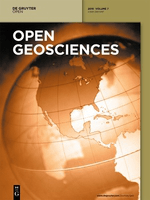
Open Geosciences
Bridging Gaps in Earth and Environmental Research.Open Geosciences, published by DE GRUYTER POLAND SP Z O O, is a prominent open access journal that has been serving the scientific community since its inception in 2015. With an ISSN of 2391-5447, this journal focuses on the dynamic fields of Earth and Planetary Sciences as well as Environmental Science, securing a commendable Q2 ranking in both categories as of 2023. Situated in Germany, Open Geosciences is committed to disseminating high-quality research and facilitating innovative discussions surrounding geosciences. The journal embraces a diverse range of topics, aiming to foster collaboration among researchers, professionals, and students worldwide. As an open access publication, it enhances visibility and accessibility of its articles, allowing for greater engagement within the global scientific community. This is further substantiated by its respectable Scopus rankings—77th out of 195 in General Earth and Planetary Sciences and 97th out of 219 in Environmental Science—which underscore its significance in advancing geoscientific knowledge. Whether you are a researcher looking to publish your findings or a student seeking valuable insights, Open Geosciences stands out as a crucial resource in the exploration of our planet and its environment.
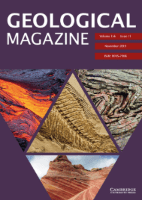
GEOLOGICAL MAGAZINE
Connecting Scholars to the Heart of GeologyGEOLOGICAL MAGAZINE, published by Cambridge University Press, is a premier journal in the field of geology, renowned for its rich legacy since 1864 and ongoing contributions to Earth and Planetary Sciences. With an impressive Q1 ranking in Geology and a Scopus rank of #70 out of 321 journals, it holds a significant position within the academic community, appealing to researchers, professionals, and students alike. The journal covers a wide array of topics, ensuring a comprehensive platform for the dissemination of cutting-edge geological research. Although it does not offer open access, it remains a vital resource for those seeking to stay abreast of advancements in the field. With an enduring commitment to quality, GEOLOGICAL MAGAZINE stands as an essential outlet for scholarly communication and serves as a catalyst for academic discourse within the geological sciences.
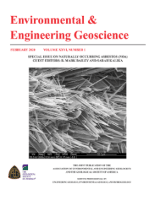
ENVIRONMENTAL & ENGINEERING GEOSCIENCE
Bridging Knowledge Gaps in Environmental and Engineering GeoscienceENVIRONMENTAL & ENGINEERING GEOSCIENCE, published by the Geological Society of America, Inc, is an esteemed peer-reviewed journal duly established to advance the fields of geotechnical engineering, environmental engineering, and broader earth sciences. With an ISSN of 1078-7275 and an E-ISSN of 1558-9161, this journal disseminates high-quality research and innovative methodologies that address pressing environmental issues and engineering challenges. As of 2023, it is classified in the Q3 category across various disciplines within earth and planetary sciences, highlighting its contribution and relevance within the academic community. The journal boasts an impactful trajectory, converging research from 1995 to 2024, and is strategically positioned to facilitate the exchange of ideas among researchers, practitioners, and students alike. With a commitment to fostering an understanding of geosciences in relation to environmental engineering, this journal is a valuable resource for those dedicated to developing sustainable solutions in our ever-evolving landscape. Readers can access published works through institutional libraries or relevant academic platforms, ensuring that groundbreaking research reaches all corners of the discipline.
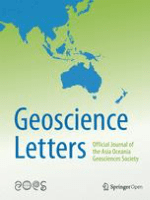
Geoscience Letters
Unlocking the Secrets of Our PlanetGeoscience Letters, published by Springer, is a prominent open-access journal in the field of Earth and Planetary Sciences, recognized for its dedication to advancing knowledge and research in this vital area of study. With a reported impact factor that reflects its esteemed position—ranking in the Q1 quartile of Earth and Planetary Sciences, particularly as the journal ranks #48 out of 195 in the general category according to Scopus—the journal serves as a vital resource for researchers, professionals, and students. Since its inception in 2014, Geoscience Letters has facilitated the dissemination of high-quality research and critical insights, aiming to bridge the gap between scientific discovery and societal needs. Its commitment to open access ensures that the latest findings are readily available to a global audience, thus enhancing collaboration and innovation within the geosciences community.

Boletim Paranaense de Geociencias
Exploring the Depths of Geological KnowledgeBoletim Paranaense de Geociencias, published by UNIV FED PARANA, EDITORA, serves as a vital platform for advancing knowledge in the field of Earth and Planetary Sciences, contributing significantly to discussions surrounding geological research and discovery. With an ISSN of 0067-964X, this esteemed journal primarily features studies that reflect regional geological contexts while also addressing wider planetary science issues. Although it currently holds a Q4 category quartile ranking and a 15th percentile in the Scopus rankings within its field, the journal remains committed to disseminating valuable insights and fostering academic discourse. This is of particular significance as it tirelessly updates its publication scope, aiming to include contributions from diverse geological studies both regionally and globally. While it operates on a printed basis, researchers and students alike will find the Boletim’s progressive discussions critical for understanding the dynamic processes shaping our planet.
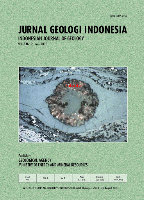
Indonesian Journal of Geoscience
Fostering Collaboration in the Heart of Geoscience Research.Indonesian Journal of Geoscience, published by the GEOLOGICAL AGENCY, is a vital platform for sharing cutting-edge research in the field of Earth and Planetary Sciences. With an ISSN of 2355-9314 and E-ISSN of 2355-9306, this open-access journal has been making significant contributions to the geoscientific community since its establishment in 2013. Operating out of Bandung, Indonesia, the journal is dedicated to disseminating high-quality research across diverse areas, making it an essential resource for researchers, professionals, and students alike. Recognized in the 2023 Q2 category in Earth and Planetary Sciences, it currently ranks #134/195 among general Earth and Planetary Sciences journals in Scopus, reflecting its growing prominence and academic rigor. The journal seeks to foster scientific discussions by publishing original research, reviews, and case studies that address contemporary challenges and advancements in geoscience, thus contributing to a deeper understanding of our planet. With its commitment to open access, the Indonesian Journal of Geoscience ensures that vital research is accessible to a global audience, encouraging collaboration and innovation in the field.